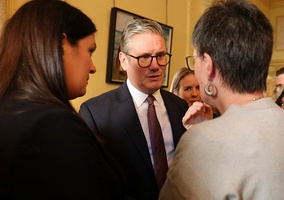Eighty years ago, the second world war came to an end after six years of fighting. The global conflict had a long-lasting impact on the world and on UK society.
As it drew to a close, Clement Attlee led a Labour landslide victory, ousting iconic wartime leader Winston Churchill. As is well known, this Labour government created the National Health Service and embarked on a programme of nationalisation of key national industries, such as the railways, electricity utilities and coal industry.
Its central principle was that the government’s role was to manage the economy – something that became the post-war economic consensus among all the major parties, until Margaret Thatcher turned the tide after her own landslide victory. She introduced free market economics and oversaw a period of economic deregulation and privatisation.
Last year saw Labour once again win a landslide victory. It is fair to say that, unlike in Attlee’s day, Keir Starmer’s government was not voted in on a radical platform. There has not been (nor was there a promise of) a widespread undoing of the free market principles and major nationalisations.
However, there was some hope that Starmer would oversee a more stable period of government than the previous administration and many welcomed the new prime minister’s warm words about the charity sector.
Fast forward one year, and we now have the Civil Society Covenant. This aims to reset the relationship between the charity sector and government. Time will tell how effectively this happens – as our cover theme explores not all the decisions taken by the government since taking power have been helpful to charities. Some have had a serious negative impact.
Despite this, many will still be hoping that a stable period is ahead, with charities’ concerns and problems being listened to by those in power. Perhaps one good sign is the government’s plans to increase public sector procurement spending with the voluntary, community and social enterprise organisations. The government said the move “will open up more opportunities for small and medium-sized enterprises and voluntary, community, and social enterprises, which are vital for driving the UK economy”.
Tristan Blythe is editor of Charity Finance
Related articles













